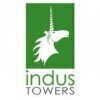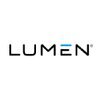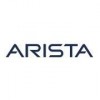Filter interviews by
Sterlite Technologies Graduate Engineer Trainee (Get) Interview Questions and Answers
10 Interview questions
My strengths include problem-solving, adaptability, and teamwork.
Strong problem-solving skills: I enjoy analyzing complex problems and finding innovative solutions.
Adaptability: I am able to quickly adapt to new situations and learn new technologies or processes.
Teamwork: I work well in a team environment, collaborating with others to achieve common goals.
Example: During my internship, I was part of a team that su...
Torsion stress is the stress experienced by a material when it is subjected to twisting or torsional forces.
Torsion stress occurs when a material is twisted or subjected to torsional forces.
It is measured in units of force per unit area, such as pounds per square inch (psi) or pascals (Pa).
Torsion stress can cause deformation or failure in a material, especially if it exceeds the material's torsional strength.
Exam...
Creating an HTML input field with inline CSS for styling.
Use the <input> tag to create an input field. Example: <input type='text' placeholder='Enter your name'>.
Apply inline CSS using the 'style' attribute. Example: <input type='text' style='border: 1px solid #ccc; padding: 10px;'>.
You can customize the appearance further with properties like 'width', 'font-size', and 'background-color'.
Example ...
My preferred programming language is Python because of its simplicity, versatility, and vast community support.
Python is easy to learn and read, making it a great language for beginners.
It has a wide range of applications, from web development to data analysis and machine learning.
Python has a large and active community, providing access to numerous libraries and resources.
It is also cross-platform, meaning it can...
Encapsulation is the process of hiding implementation details and exposing only necessary information.
Encapsulation is a fundamental concept in object-oriented programming.
It helps in achieving data abstraction and information hiding.
It allows for better control over the data and prevents unauthorized access.
Example: A class in Java that has private variables and public methods to access them.
Example: A capsule th...
Understanding OOP concepts through code analysis is crucial for software development and engineering roles.
OOP stands for Object-Oriented Programming, which uses objects to represent data and methods.
Key concepts include Encapsulation, Inheritance, Polymorphism, and Abstraction.
Example of Encapsulation: Using private variables in a class to restrict access.
Inheritance allows a class to inherit properties and metho...
OOP Concept is a programming paradigm that uses objects to represent real-world entities. Inheritance is a mechanism where a class inherits properties and behaviors from another class.
OOP Concept is based on the principles of encapsulation, inheritance, and polymorphism.
It allows for modular and reusable code by organizing data and functions into objects.
Inheritance is a key feature of OOP that allows a class to i...
Different types of compressors include reciprocating, rotary, centrifugal, and axial compressors.
Reciprocating compressors use pistons to compress the gas.
Rotary compressors use rotating impellers or screws to compress the gas.
Centrifugal compressors use a rotating impeller to accelerate the gas and then convert the kinetic energy into pressure.
Axial compressors use a series of rotating and stationary blades to co...
Gas laws describe the behavior of gases under different conditions.
Boyle's Law: Pressure and volume of a gas are inversely proportional at constant temperature.
Charles's Law: Volume and temperature of a gas are directly proportional at constant pressure.
Gay-Lussac's Law: Pressure and temperature of a gas are directly proportional at constant volume.
Avogadro's Law: Volume of a gas is directly proportional to the nu...
Classes are blueprints for creating objects, inheritance is a mechanism for creating new classes based on existing ones.
Classes are used to define objects with their properties and behaviors
Inheritance allows a class to inherit properties and methods from another class
Types of inheritance include single, multiple, multilevel, and hierarchical inheritance
Sterlite Technologies Graduate Engineer Trainee (Get) Interview Experiences
15 interviews found
Average Test and was easy to clear
(4 Questions)
- Q1. Study Mechanical related topics
- Q2. What are different gas laws
- Ans.
Gas laws describe the behavior of gases under different conditions.
Boyle's Law: Pressure and volume of a gas are inversely proportional at constant temperature.
Charles's Law: Volume and temperature of a gas are directly proportional at constant pressure.
Gay-Lussac's Law: Pressure and temperature of a gas are directly proportional at constant volume.
Avogadro's Law: Volume of a gas is directly proportional to the number ...
- Q3. What is torson stress
- Ans.
Torsion stress is the stress experienced by a material when it is subjected to twisting or torsional forces.
Torsion stress occurs when a material is twisted or subjected to torsional forces.
It is measured in units of force per unit area, such as pounds per square inch (psi) or pascals (Pa).
Torsion stress can cause deformation or failure in a material, especially if it exceeds the material's torsional strength.
Examples ...
- Q4. Different types of compressors
- Ans.
Different types of compressors include reciprocating, rotary, centrifugal, and axial compressors.
Reciprocating compressors use pistons to compress the gas.
Rotary compressors use rotating impellers or screws to compress the gas.
Centrifugal compressors use a rotating impeller to accelerate the gas and then convert the kinetic energy into pressure.
Axial compressors use a series of rotating and stationary blades to compres...
(4 Questions)
- Q1. General questions which are asked
- Q2. Tell me about yourself
- Ans.
I am a recent engineering graduate with a passion for technology and problem-solving, eager to contribute to innovative projects.
Educational Background: I hold a Bachelor's degree in Engineering from XYZ University, where I graduated with honors and completed projects in robotics.
Internship Experience: During my internship at ABC Company, I worked on developing a web application that improved user engagement by 30%.
Tec...
- Q3. What are your strenghts
- Ans.
My strengths include problem-solving, adaptability, and teamwork.
Strong problem-solving skills: I enjoy analyzing complex problems and finding innovative solutions.
Adaptability: I am able to quickly adapt to new situations and learn new technologies or processes.
Teamwork: I work well in a team environment, collaborating with others to achieve common goals.
Example: During my internship, I was part of a team that success...
- Q4. What are your hobbies
- Ans.
My hobbies include reading, hiking, and playing the guitar, which help me relax and foster creativity in my engineering work.
Reading: I enjoy exploring various genres, especially science fiction and technology-related books, which inspire innovative thinking.
Hiking: I love spending time outdoors, hiking in nature, which helps me recharge and maintain a healthy lifestyle.
Playing Guitar: I play the guitar as a creative o...
Interview Preparation Tips
I applied via Job Portal and was interviewed before Jan 2024. There were 3 interview rounds.
2 Programming questions
(1 Question)
- Q1. Questions on OS, Networks, and programming.
(1 Question)
- Q1. Regarding salary, work location, and other questions related to onboarding process.

Logical, Quants, Verbal, Reasoning
DSA, 1 medium level question, String, Array, Tree, List
(2 Questions)
- Q1. Projects, OOPS, DSA, DBMS
- Q2. OS, CN, Java, Python
Interview Preparation Tips
I applied via Campus Placement and was interviewed in Oct 2022. There were 4 interview rounds.

Very easy and basic questions of your subject
(1 Question)
- Q1. Mostly focus on you final year project
(1 Question)
- Q1. About yourself and your internship
I applied via Campus Placement and was interviewed before Feb 2022. There were 2 interview rounds.

(3 Questions)
- Q1. Hello Jaydeep, Tell me about yourself.
- Ans. First of all thanks to STL for allowing me to invite this interview. I am Jaydeep, I am from Murshidabad College of Engineering and Technology under M.A.K.A.U.T university. I have done my internship at Tata Consultancy Services as UI/UX Designer and Developer for 3 Months. Now I am working in oneAdvanced as Full-Stack Developer. My primary skills are Front-end development and UI/UX Designing. I also know Machine Learni...
- Q2. So your primary skill is Front-end Developing. You have to write code in HTML to show the input field and also use in-line CSS.
- Ans.
Creating an HTML input field with inline CSS for styling.
Use the <input> tag to create an input field. Example: <input type='text' placeholder='Enter your name'>.
Apply inline CSS using the 'style' attribute. Example: <input type='text' style='border: 1px solid #ccc; padding: 10px;'>.
You can customize the appearance further with properties like 'width', 'font-size', and 'background-color'.
Example of a ...
- Q3. What is OOP Concept? What is inheritance?
- Ans.
OOP Concept is a programming paradigm that uses objects to represent real-world entities. Inheritance is a mechanism where a class inherits properties and behaviors from another class.
OOP Concept is based on the principles of encapsulation, inheritance, and polymorphism.
It allows for modular and reusable code by organizing data and functions into objects.
Inheritance is a key feature of OOP that allows a class to inheri...
Interview Preparation Tips
- OOPS
- Data Structures
- Alrogithms
- Database
I applied via Campus Placement and was interviewed in Apr 2022. There were 4 interview rounds.

Aptitude as well as Coding Questions
Questions were easy - medium level
Practice on Indiabix
(1 Question)
- Q1. Questions mainly on 1) OOPS 2) DBMS 3) Java and Python
(2 Questions)
- Q1. Tell me about yourself and basic details about college
- Q2. Project Discussion and resume discussion
Interview Preparation Tips
Do not panic
I applied via Campus Placement and was interviewed in Jun 2022. There were 3 interview rounds.
Aptitude and Technical Questions (MCQ Test)
(1 Question)
- Q1. Technical Interview of 20-25 min
(1 Question)
- Q1. Introduce yourself Family Background Detailes Intership Related Questions
Interview Preparation Tips
I applied via Campus Placement and was interviewed in Dec 2021. There were 3 interview rounds.

(2 Questions)
- Q1. Questions about 1 programming language
- Q2. Questions about ooad, software engineering topics
(2 Questions)
- Q1. Questions about personal development
- Q2. Some questions about technical
Interview Preparation Tips
Anyone can crack the interview with basic preparation
DSA, OS, Oops and Aptitude Questions
(1 Question)
- Q1. Oops concepts, Questions on resume and projects and SQL joins
Interview Preparation Tips
I applied via Campus Placement and was interviewed before Feb 2023. There were 2 interview rounds.
(2 Questions)
- Q1. Resume based questions
- Q2. Database questions
(2 Questions)
- Q1. Past experience
- Q2. Why this company
- Ans.
I am drawn to this company for its innovative approach, strong values, and commitment to professional growth and development.
Innovative Culture: The company is known for its cutting-edge projects, such as developing AI-driven solutions that enhance user experience.
Strong Values: I admire the company's commitment to sustainability and social responsibility, evident in its community outreach programs.
Professional Growth:...
Top trending discussions






Sterlite Technologies Interview FAQs
Some of the top questions asked at the Sterlite Technologies Graduate Engineer Trainee (Get) interview -
The duration of Sterlite Technologies Graduate Engineer Trainee (Get) interview process can vary, but typically it takes about less than 2 weeks to complete.
Tell us how to improve this page.
Sterlite Technologies Interviews By Designations
- Sterlite Technologies Graduate Engineer Trainee (Get) Interview Questions
- Sterlite Technologies Field Engineer Interview Questions
- Sterlite Technologies Technical Lead Interview Questions
- Sterlite Technologies Senior Software Engineer Interview Questions
- Sterlite Technologies Process Associate Interview Questions
- Sterlite Technologies Project Engineer Interview Questions
- Sterlite Technologies Diploma Trainee Engineer Interview Questions
- Sterlite Technologies Graduate Engineer Interview Questions
- Show more
Overall Interview Experience Rating
based on 8 interview experiences
Difficulty level
Duration
Interview Questions from Similar Companies

Sterlite Technologies Graduate Engineer Trainee (Get) Reviews and Ratings
based on 52 reviews
Rating in categories
|
Process Associate
637
salaries
| ₹2 L/yr - ₹5.8 L/yr |
|
Field Engineer
291
salaries
| ₹2.4 L/yr - ₹7 L/yr |
|
Associate Manager
244
salaries
| ₹8.6 L/yr - ₹14 L/yr |
|
Associate Officer
212
salaries
| ₹3.8 L/yr - ₹6.7 L/yr |
|
Software Engineer
207
salaries
| ₹4.9 L/yr - ₹11.5 L/yr |

Indus Towers

Cisco

BT Business

Lumen Technologies
- Home >
- Interviews >
- Sterlite Technologies Interview Questions














